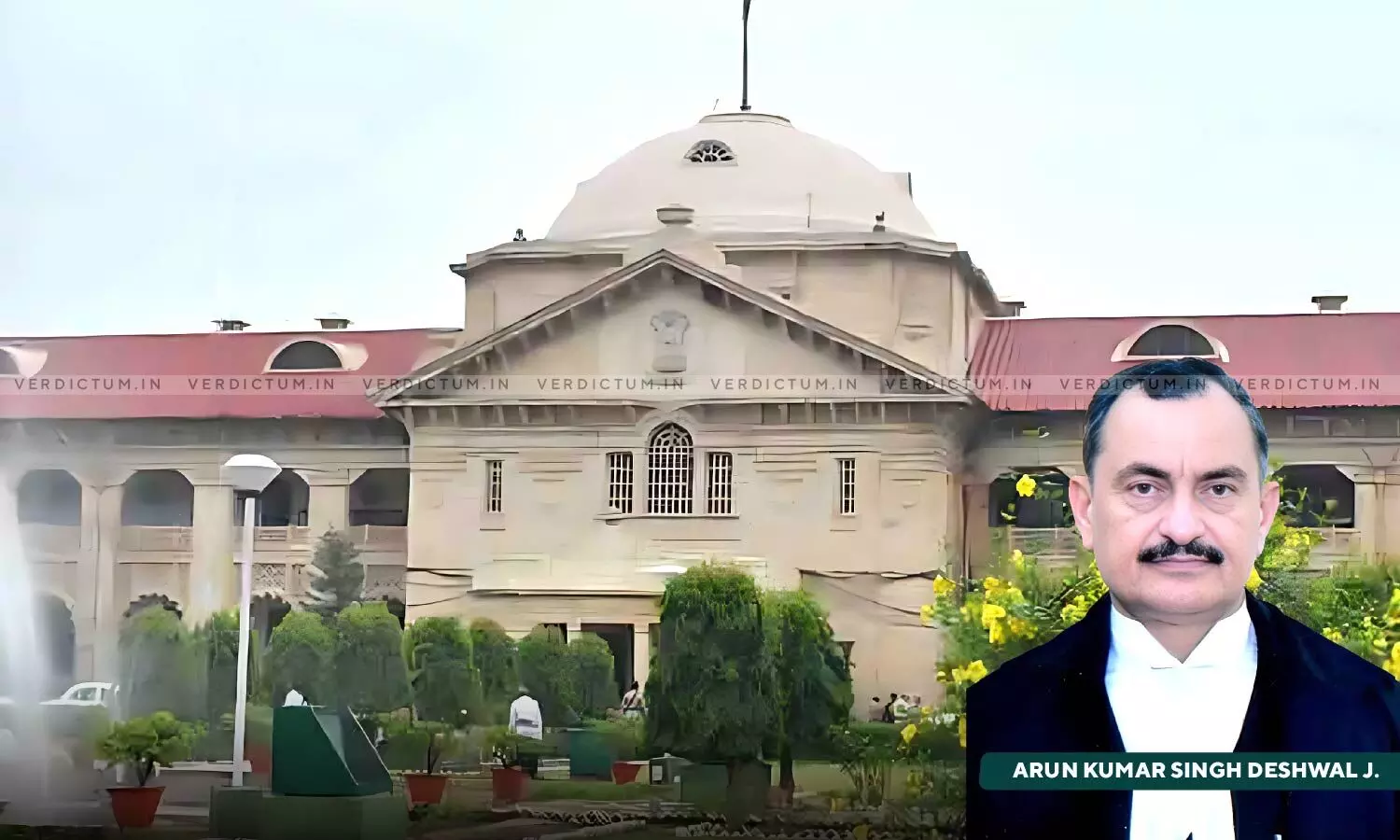
Justice Arun Kumar Singh Deshwal, Allahabad High Court
Quran Allows Conditional Polygamy, But It's Misused: Allahabad HC Holds That Bigamy Charges Inapplicable To Muslim Man Marrying Under Mohammedan Law
 |
|The man sought to quash bigamy and rape charges, claiming Muslim law permits up to four marriages.
The Allahabad High Court held that bigamy charges cannot be sustained against a Muslim man if multiple marriages are solemnized under Mohammedan law, as polygamy is conditionally permitted in Islam. However, the Court cautioned that this religious provision is often misused for selfish purposes. It further emphasized that conversion cannot be used to evade monogamy mandated by other personal laws.
The ruling came in response to a plea filed by a man who sought the quashing of charges filed against him, including bigamy and rape. The case was initiated based on a complaint by a woman who alleged that he had concealed his existing marriage when he married her.
He, however, claimed that he was entitled under Muslim personal law to contract up to four marriages, and therefore had committed no offence.
A Bench of Justice Arun Kumar Singh Deshwal said, “The Quran allows polygamy for a fair reason, but the men use that provision today for a selfish purpose. Polygamy finds mention in Quran only once, and it is about conditional polygamy. There is a historical reason why the Quran allows polygamy.”
It added, “There was a time in history when a large number of women were widowed, and children were orphaned in primitive tribal tussles in Arabs. The Muslims suffered heavy casualties in defending the nascent Islamic community in Medina. It was under such circumstances that the Quran allowed conditional polygamy to protect orphans and their mothers from exploitation.”
The Court noted that the offence of bigamy would only be attracted under specific circumstances such as when the first marriage is void, or if it was conducted under a personal or civil law that prohibits polygamy.
The Court clarified that if a man, after contracting a marriage under the Special Marriage Act, Hindu Marriage Act, Christian Marriage Act, Parsi Marriage and Divorce Act, or Foreign Marriage Act, subsequently converts to Islam and then marries again under Muslim law, the offence of bigamy would apply. This is because conversion cannot be used as a tool to bypass existing marriage laws.
The Court also confirmed that Family Courts have jurisdiction under Section 7 of the Family Courts Act to determine the validity of a Muslim marriage solemnized under Muslim Personal Law.
The Court observed that religious freedom, as guaranteed by Article 25 of the Constitution of India, is not absolute or unregulated. The Court added, “This Court would further like to observe that Article 25 of the Constitution of India gives religious freedom to profess, practice and propagate, which also includes external overt acts of individual as per his religious faith, but this right is subject to public order, morality and health and other provisions of Part-III of the Constitution. Therefore, religious liberty under Article 25 is not unfettered and can be regulated by the State.”
The Court noted,“…it is clear that the Quran asks men first consider taking care of the orphans and only when they think they may not be able to do justice to the orphans’ interests while staying in isolation, should they consider marrying their widowed mothers, on the condition that the new family would be dealt with justly on par with the existing one.”
The Court underscored the need for a Uniform Civil Code (UCC), urging the legislature to take appropriate action to ensure equality and uniformity in personal laws.
The Court added, “From the perusal of several provisions of Muslim law discussed above, it is also clear that Islam permits more than one marriage only under certain circumstances and with certain conditions, but this permission is widely misused even against the mandate of Muslim law as mentioned in above quoted verses of Quran. Therefore, this Court is also of the view that the suggestion made in Smt. Sarla Mudgal (supra), Lily Thomas (supra) and Jafar Abbas Rasoolmohammad Merchant (supra) regarding enactment of Uniform Civil Code in pursuance of mandate of Article 44 of the Constitution of India needs to be considered by the legislature.”
The High Court held that in this particular case, the offences of bigamy and rape were not applicable, as the marriage appeared valid under Mohammedan law. However, the Court did not close the matter, observing that it required further legal examination.
The Court issued a notice to the complainant and directed that no coercive action be taken until further orders.
Cause Title: Furkan & Ors. v. State of U.P. & Anr.
Appearance:
Applicants: Advocates Alok Kumar Pandey, Prashant Kumar, Susheel Kumar Pandey